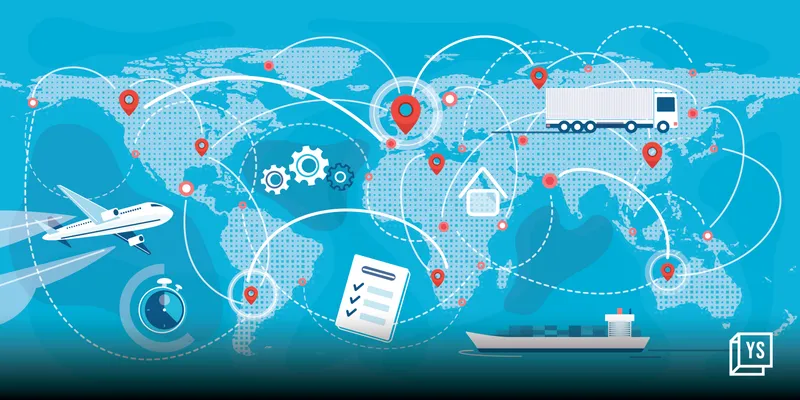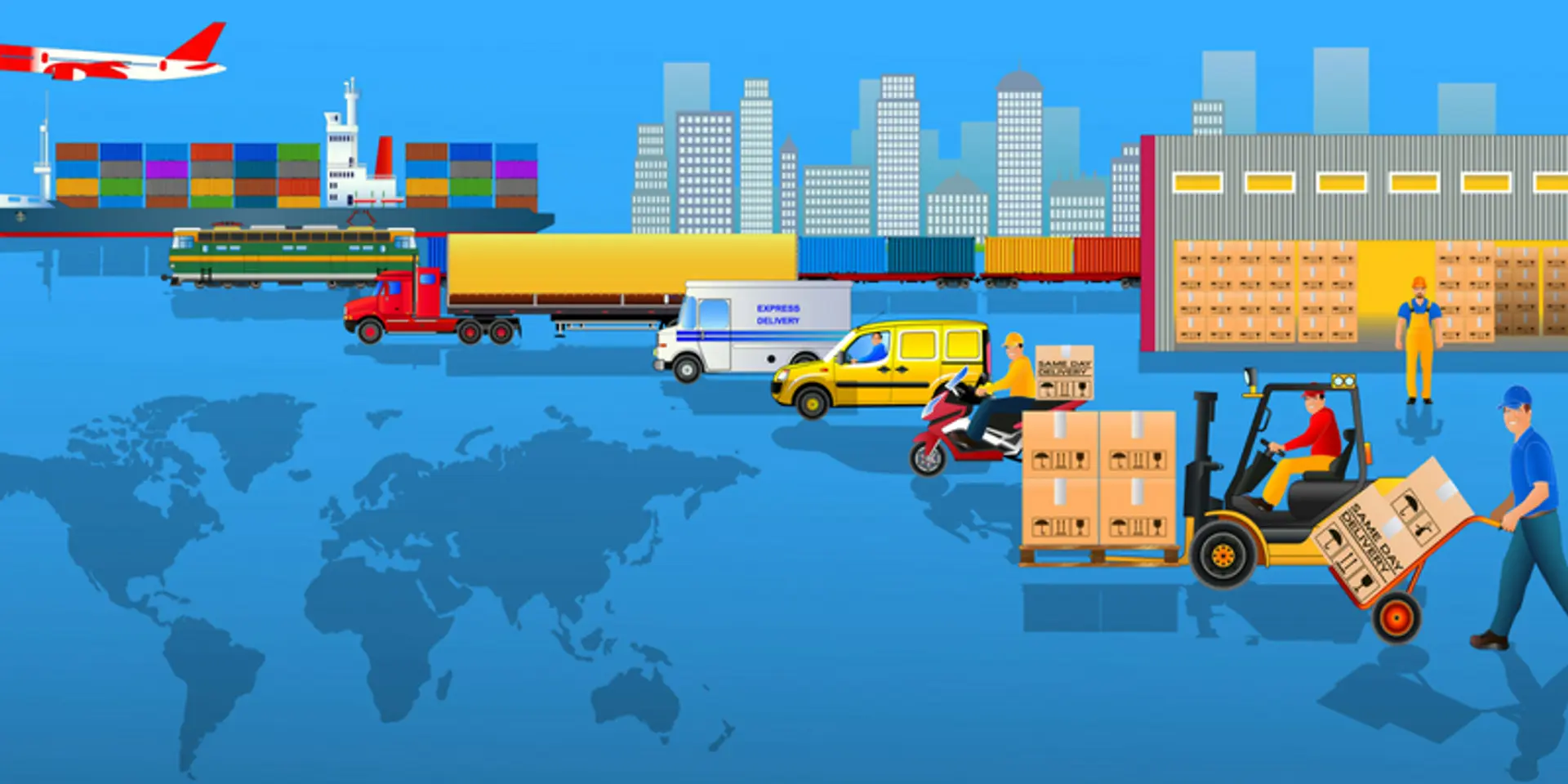Green supply chain management: A sustainable future for industries
In this article, we will explore the evolution of GSCM, industries adopting it, future trends, and the compelling reasons behind its growing importance.
In recent years, there has been a growing emphasis on sustainable business practices, and one key aspect that has gained significant attention is green supply chain management (GSCM). This evolving approach focuses on integrating environmentally friendly practices into every stage of the supply chain—from raw material sourcing to production, distribution, and disposal—while incorporating the principle of 4R1D (reduce, reuse, recycle, reclaim, and degradable).
The emergence of green supply chain management was a direct response to the pressing global challenges of environmental degradation and climate change. Initially, the focus was on reducing the ecological footprint of supply chain activities. However, as these challenges intensified, GSCM evolved to encompass a broader range of strategies, including using sustainable materials, energy-efficient manufacturing processes, and the implementation of circular economy principles.
Today, GSCM is not merely a compliance-driven initiative but a strategic choice. It aligns with the much-endorsed corporate social responsibility and long-term business sustainability goals, making it a smart business decision for industries looking to secure their future.

Advancements in GSCM across industries
Industries across sectors, including automotive, technology, food and beverage, and fashion, have recognised the importance of sustainability and environmental responsibility and are taking concrete steps towards adopting GSCM.
F&B sector
In the food and beverage (F&B) sector, the integration of sustainable agriculture, responsible packaging, and efficient distribution channels has become increasingly vital within the supply chain. Moreover, technological advancements offer invaluable insights into consumer behaviour. Utilising advanced data analytics and AI algorithms, companies can effectively anticipate market trends and consumption patterns, optimise inventory management, and meet customer demands promptly.
A success story within the F&B industry is of multinational food and beverage conglomerate Nestle which has made sustainability a cornerstone of its business strategy. In 2023, the company successfully reduced its greenhouse gas emissions by 13.5% while ensuring that 15.2% of its raw materials originated from farmers employing regenerative agriculture practices by the close of the same year, it said in its sustainability report.
Automotive sector
The automotive sector has long been associated with significant contributions to air pollution and global warming, primarily stemming from emissions generated by its vehicles. To mitigate the adverse economic and environmental impacts of automobiles, it is imperative for automakers to address various stages of the supply chain, encompassing production, usage, and end-of-life product management.
Efforts should be directed towards enhancing fuel efficiency, reducing emissions, prolonging vehicle lifespan, and promoting metal recycling initiatives. Additionally, the rise of electric vehicles (EVs) stands as a promising avenue toward fostering a cleaner and more sustainable future environment.
Research conducted by Staufen AG in 2021 shed light on the automotive industry's green transformation. It revealed that sustainability considerations hold significant weight for 61% of the surveyed companies when evaluating potential cooperation partners and suppliers.
Fashion and apparel
Similarly, sustainability has shaped supply chains within the apparel industry, mandating clear sourcing, waste reduction, and ethical standards across production. With the fashion industry accounting for nearly 10% of global carbon emissions, and at the current pace of manufacturing, emissions are likely to surge more than 50% by 2030, according to the United Nations Environment Programme. There's a rising focus on sustainable material procurement, ethical labour, and eco-conscious packaging, all aimed at curbing fast fashion's environmental footprint.
By aligning with environmental regulations and consumer expectations, businesses can safeguard operations and enhance resilience in an ever-changing market landscape. Additionally, GSCM presents opportunities for significant cost savings over the long term. Implementing energy-efficient processes and waste reduction measures not only aligns with environmental goals but also improves operational efficiency, thereby reducing expenses.

Navigating supply chain sustainability
Future of GSCM
In supply chain management, several key trends are emerging to address environmental concerns and enhance efficiency.
Digitalisation and technology advancements, including big data management, blockchain, artificial intelligence, and data analytics, are ready to revolutionise supply chain processes. These technologies will enable companies to optimise operations, reduce waste, and enhance transparency throughout the supply chain.
Furthermore, there is a growing emphasis on embracing circular economy principles, such as product life extension, refurbishment, and recycling.
Additionally, imbibing regulatory compliance is becoming increasingly important as environmental regulations tighten and consumer demand for sustainability grows. Companies are thus compelled to adopt and adhere to stringent green standards to meet regulatory requirements and satisfy consumer preferences.
Collectively, these trends underscore a fundamental shift towards more sustainable and transparent supply chain practices in response to environmental challenges and market demands.
Facing implementation challenges
Despite the clear benefits, there are challenges associated with opting for a green supply chain.
One of the primary challenges is the initial investment required to transition to sustainable practices and technologies. Many companies may face financial constraints or reluctance to allocate resources for such initiatives, especially if they perceive them as costly or disruptive to existing operations.
Additionally, ensuring supply chain transparency and traceability can be challenging, particularly in complex global supply networks involving multiple stakeholders. Moreover, the limited availability of sustainable materials and technologies, coupled with uncertain market demand, can pose obstacles to implementing green supply chain strategies effectively.
Overcoming these challenges requires a concerted effort from businesses, policymakers, and stakeholders to drive innovation, collaboration, and regulatory support in advancing sustainability agendas within supply chain operations.
Propelling industries towards green supply chain excellence
With consumers increasingly prioritising environmental considerations in their purchasing decisions, businesses are compelled to align their supply chain operations with sustainability goals to meet these expectations. Moreover, governments worldwide are imposing stricter environmental regulations, compelling industries to adopt sustainable practices or face legal consequences.
This regulatory push catalyses companies to integrate green initiatives into their supply chain strategies to ensure compliance and mitigate risks. Furthermore, embracing GSCM not only helps companies meet regulatory requirements and consumer expectations but also provides a competitive advantage.
Companies that demonstrate a commitment to sustainability gain favour among environmentally conscious consumers and investors, positioning themselves as leaders in their respective industries and driving long-term success. Thus, the convergence of consumer demand, regulatory pressures, and the pursuit of competitive advantage underscores the imperative for businesses to prioritise green supply chain practices in today's global marketplace.
In conclusion, embracing a green supply chain model rests with individual industries, considering the array of impacts and challenges involved. While some may opt to navigate the complexities and reap the long-term benefits of sustainability, others may weigh the associated costs and disruptions against their existing operations. Ultimately, the journey towards a green supply chain demands a strategic balance between environmental responsibility and economic viability, tailored to the unique needs and aspirations of each sector.
(Kartik Nagarajan is Managing Director of Business Consulting and Global Business Services (Sales), Nexdigm.)
Edited by Kanishk Singh
(Disclaimer: The views and opinions expressed in this article are those of the author and do not necessarily reflect the views of YourStory.)









